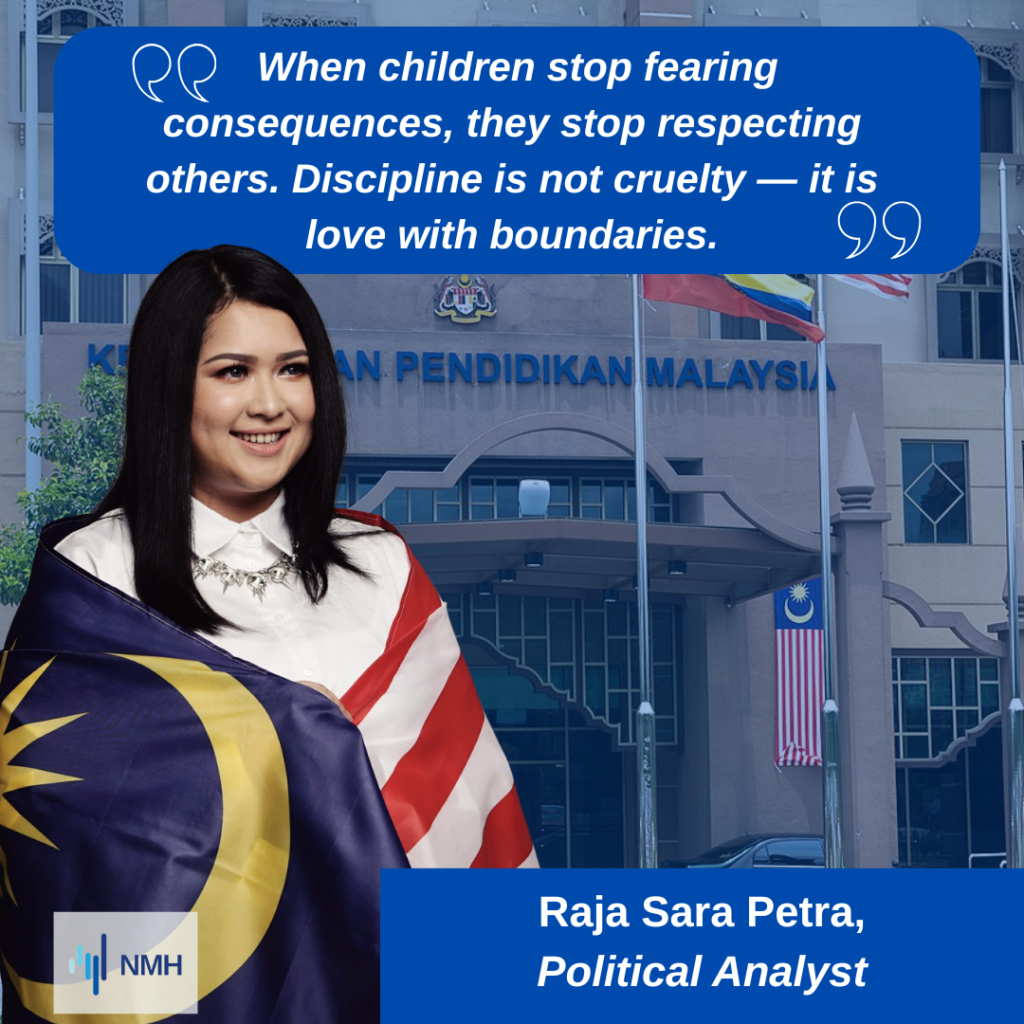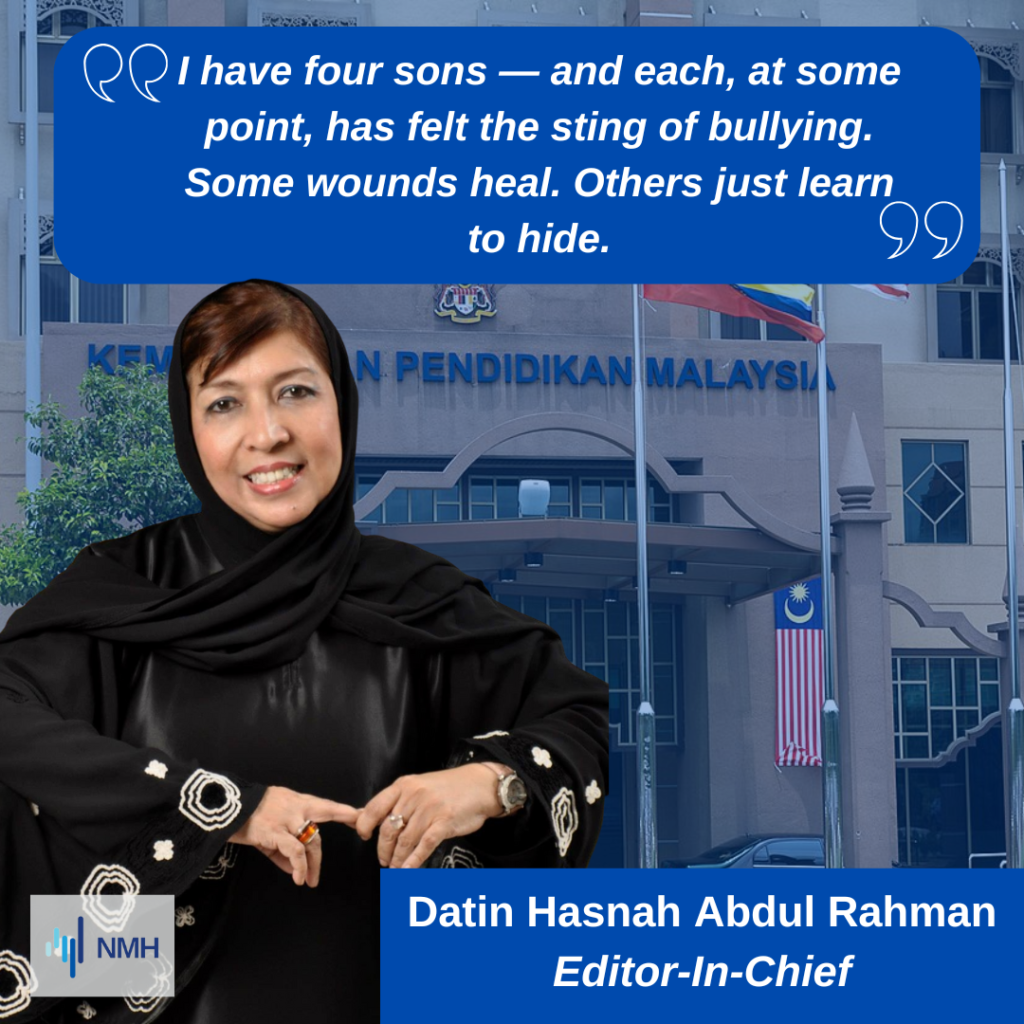School bullying has long crossed the line from childish cruelty to a national crisis. As a mother of four sons — two of whom are neurodiverse — and as a journalist, I can no longer read these stories with newsroom detachment. Every headline feels like a wound. Tears flow when I was writing this.
A Nation in Grief
Yesterday, I couldn’t finish reading the news. Another schoolchild dead — stabbed by her schoolmate. A 16-year-old killed in a place that should have been her second home. Although this is not the general school bullying case we have been reading about in the news lately, this is a reflection that all is not well in our institutions of learning.
As a mother of four sons, two of whom are neurodiverse, I am shattered. I can’t imagine what her parents must be going through — because like so many other mothers, I’ve lived through my own quiet fears, the kind that start with whispers of bullying, bruised self-esteem, and a system that looks away until it’s too late.
These past few weeks, Malaysia has been shaken again and again — one story after another of cruelty among children. A Form 3 girl gang raped by her seniors in Melaka. A student stabbed to death in Bandar Utama. A Year 3 child molested by a school security guard. A sports day that ended in tragedy when a septic tank cover gave way.
How did we get here?
How did schools — meant to nurture, protect and inspire — become places of fear and trauma?
School Bullying and a Generation Without Fear
Raja Sara Petra, in a piece that went viral, asked a painful but necessary question: “What happened to our sense of fear and respect?”
She wrote, “When fear disappears, respect dies. And when respect dies, chaos takes over.”

Maybe that’s part of it. Maybe in trying to be progressive, we have stripped away the healthy boundaries that once kept our children anchored.
We tell teachers, “Don’t scold.”
We tell parents, “Don’t rotan.”
And then we watch in horror when empathy fades and cruelty becomes entertainment on TikTok.
But discipline alone isn’t the full story.
Dr Ahmad Fadhzil Mohamad from Perlis wrote in his heartbreaking essay, “Bila Sekolah Dah Hilang Jiwa dan Adab,” that our education system has lost its soul.
He said, “Kita tengah lahirkan pelajar yang pandai atas kertas, tapi kosong dalam jiwa.”
We’ve built exam factories, not communities of conscience.
We glorify results, not resilience; compliance, not compassion.
When Teachers Break
And then there are our teachers — standing at the frontlines, yet increasingly powerless.
One former teaching intern wrote about how parental overprotection has crushed educators’ spirits: “These four months (as a teaching intern) have worn down my passion for education … I no longer have the courage to say: I want to be a teacher.”
Teachers are expected to perform miracles — teach, nurture, discipline, manage paperwork, and now, act as counsellors and social workers. But when something goes wrong, they are the first to be blamed, vilified, or viral-ed, as in the case of the two male discipline teachers who were handcuffed with the possibility of having to serve jail time for caning a student who misbehaved.
As writer Danny Liew pointed out, teachers are now “the de facto government welfare officers.” They drive students to events, collect welfare data, and yet face the wrath of parents and the public.
We can’t talk about student mental health without talking about teacher burnout.
A Ministry in Denial
And what about the Ministry of Education?
When the Melaka gang-rape case broke, Chew Sir Boon wrote an open letter to the Education Minister: “Rogol berkumpulan ialah satu jenayah kejam — ia bukan kesilapan kecil.” (A gang rape is a heinous crime, not a mere lapse in judgement.”)
He reminded her — and all of us — that education without moral clarity is empty.
If the system cannot tell the difference between justice and procedure, how can our children learn empathy and accountability?
A Mother’s Cry
As a mother, I can’t help but go back to my own sons.
All four of them have, at some point, been bullied. Two of them, being on the spectrum, were easy targets. I’ve been the tiger mum storming into schools, demanding answers, making police reports when I had to — not because I wanted to make a scene, but because I refused to let silence normalise cruelty.
I once wrote, “We cannot make bullying and ragging part of our culture — it breeds an unhappy society.” I stand by that even more today.
My youngest, Aidel, who has Asperger’s, once said during a workshop I attended with him, “At that time (when I was bullied) I felt like dying.”
Aidel is 24 now. He still sometimes faces bullying in the workplace; the trauma of school does not stay confined to the past. His words are a brutal reminder that bullying’s damage is often lifelong: it can scar mental health, erode self-worth and make trust difficult to rebuild.

Every act of bullying is a signal — that a child somewhere has lost connection, compassion, or control. And every adult who looks away becomes part of the problem.
What This Says About Us
Bullying is not merely a student problem; it is a societal mirror. When we glorify dominance, mock vulnerability, and reward aggression in adults, we normalise cruelty among the young.
If empathy is absent at home, and compassion is not modelled by adults in authority, we cannot expect it to blossom in classrooms.
Where Do We Go From Here?
We can debate discipline, policies, and parenting styles, but none of that matters if our schools lose their humanity.
We need to bring back Empathy — not as a buzzword, but as a living practice.
Empathy must be embedded in how teachers teach, how students interact, and how policies are written.
Last week, I attended a workshop at UNITAR International University on Addressing Bullying and Depression, led by Dr Brendan J. Gomez. It reminded me that empathy can be taught, cultivated, and lived — not through slogans, but through daily practice. A timely event held in conjunction with Mental Health Awareness Month.
When Our Children Stop Feeling Safe, The Nation Stops Breathing
The stories of Zara, of the Melaka girl, of every child who cried in silence, are not statistics. They are warnings.
Until we restore safety and compassion in our schools, every tragedy will remain a reflection of a nation in distress — and of parents like me, who wonder if tomorrow’s headline will bear another child’s name.
In Part 2 of this series, we’ll explore the insights shared by Dr Gomez and the participants — including a teacher who once lost a student to suicide, and later she almost lost another, but managed to save the poor child in time. Their reflections are painful, but they also offer hope — that even in the darkest corners of our schools, compassion can still take root. – NMH
Datin Hasnah is the co-founder and CEO of New Malaysia Herald based in Kuala Lumpur, Malaysia.
With an extensive background in mass communication and journalism, she works on building up New Malaysia Herald and it’s partner sites. A tireless and passionate evangalist, she champions autism studies and support groups.
Datin Hasnah is also the Editor in Chief of New Malaysia Herald.

Facebook Comments